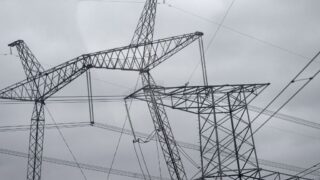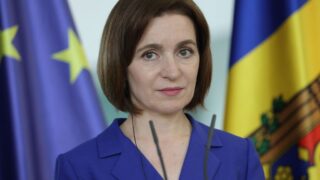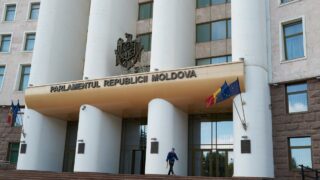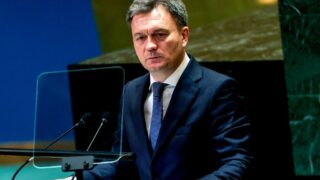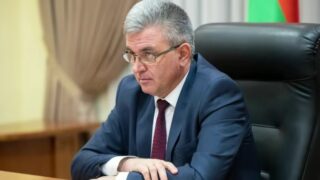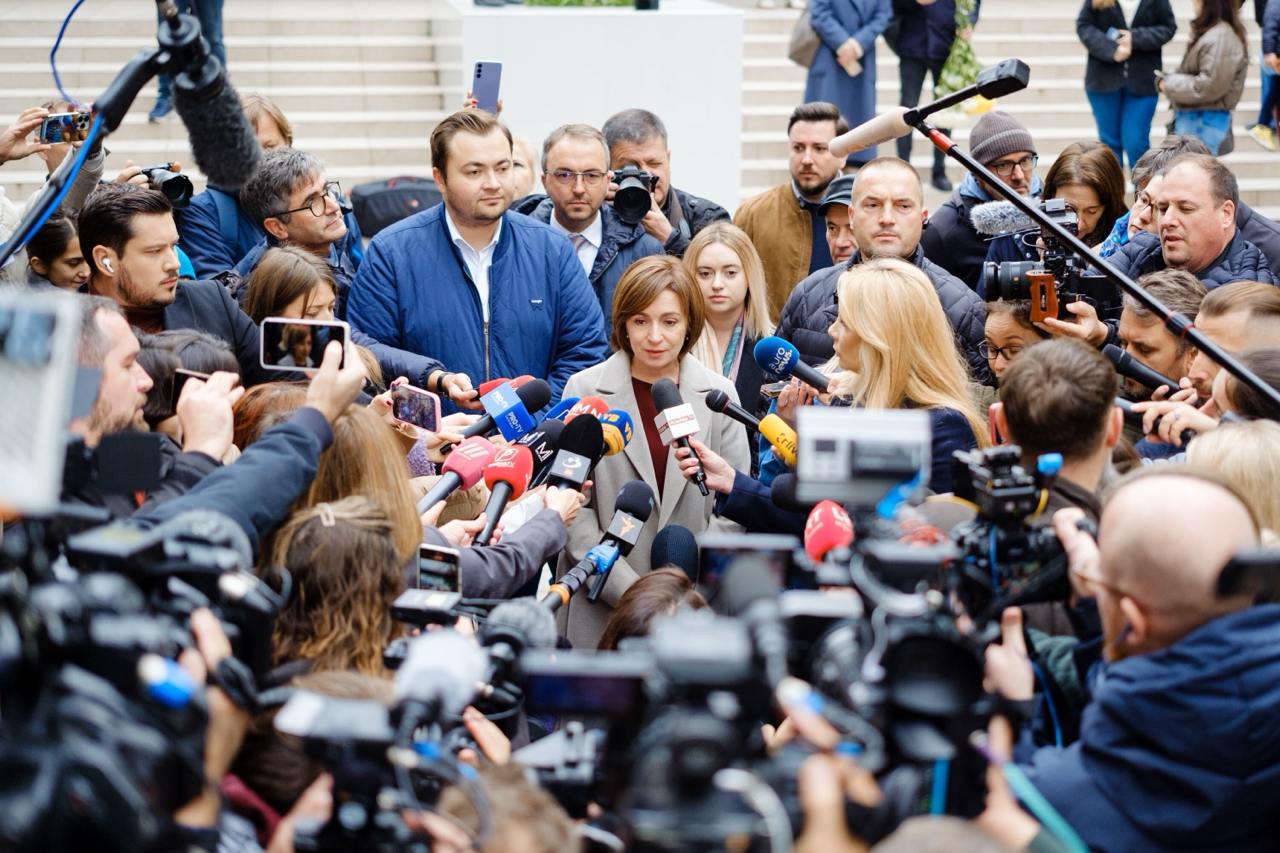
Sandu claims 300,000 votes bought in “fraud of unprecedented scale” at first round of Moldova’s presidential election
Moldova’s referendum on joining the European Union has passed by the thinnest of margins, while incumbent President Maia Sandu faces a challenging runoff election amid allegations of widespread foreign interference and vote-buying.
According to official data from Moldova’s Central Electoral Commission, with over 98% of votes counted, 50.08% voted in favor of changing the constitution to commit to joining the EU, while 49.92% voted against, Moldovan news site NewsMaker reported.
The BBC reports that the knife-edge nature of the vote has come as a shock to many, as the referendum had been widely expected to pass comfortably in the country of 2.6 million, which borders Romania and Ukraine. Opinion polls ahead of the vote indicated significantly stronger support for EU integration and Sandu.
So far, incumbent President Sandu tops the first round of the presidential vote with 41,89%, falling short of the majority needed to avoid a runoff. She will face Aleksandr Stoianoglo, who is supported by the pro-Russian Party of Socialists and received 26,36% of the vote, in a second round on 3 November.
President Sandu denounced the narrow result as the product of foreign interference in Moldovan politics. According to The Guardian, Sandu told supporters in the capital, Chișinău:
“Moldova has faced an unprecedented assault on our country’s freedom and democracy, both today and in recent months.”
She accused “criminal groups” of working together with “foreign” – meaning Russian – forces of using money, lies, and propaganda to sway the vote.
“Unprecedented” fraud
Reuters reports that Sandu claimed her government had “clear evidence” that 300,000 votes were bought, which she called a “fraud of unprecedented scale.” The allegations centered on Ilan Shor, a fugitive pro-Russian Moldovan businessman accused of funneling large amounts of cash into the country from Russia. The BBC reports that in September, Shor openly offered money to convince “as many people as possible” to vote against the EU referendum or abstain. He is now residing in Russia, which refuses to extradite him.
Yesterday, BBC reported that customs officers at Chisinau Airport began noticing passengers arriving from Moscow with unusually large sums of cash – often €2,000 to €7,000 – after only brief stays in Russia. Suspicious patterns emerged, particularly on flights connecting through Istanbul and Yerevan, prompting authorities to seize $1.5 million in one day. Investigators suspect the cash couriers were part of a political influence operation linked to Ilan Shor,.
The Kremlin has staunchly denied being involved in claims of vote-buying, according to the BBC. However, The Guardian reports that Moldovan authorities uncovered a complex “mafia-style” voter-buying scheme, with the national police chief accusing Shor and Moscow of bribing 130,000 Moldovans – almost 10% of normal voter turnout – to vote against the referendum and in favor of Russia-friendly candidates.
At a polling station for residents of the breakaway Moldovan region of Transnistria, which is economically, politically, and militarily supported by Russia, the BBC reported evidence of vote-buying. A BBC producer overheard a woman asking an election monitor where she would get paid after casting her ballot.
Bloomberg notes that the tight results are seen as a setback for Sandu’s pro-European agenda. Moldova began EU accession negotiations in June.
What’s next?
Newsmaker provides additional context on the unexpected results, saying that the tight referendum outcome and Sandu’s lower-than-expected vote share put her in a weaker position going into the second round of the presidential election. Newsmaker suggests that Sandu’s campaign strategy of linking her candidacy with the EU integration process may have backfired, given the narrow margin of the referendum.
According to Newsmaker, the significant lead between candidates can be misleading. With high turnout and few other pro-European candidates to support Sandu, her options for gaining additional votes are limited. The focus will likely shift to winning over Renato Usatîi’s supporters (13%), as his backing has been decisive in previous elections.
Newsmaker also points out that the referendum result was only saved by the high turnout among the Moldovan diaspora, who overwhelmingly support EU integration. Within Moldova itself, only Chișinău and six other districts voted in favor of the constitutional change.
Related:





